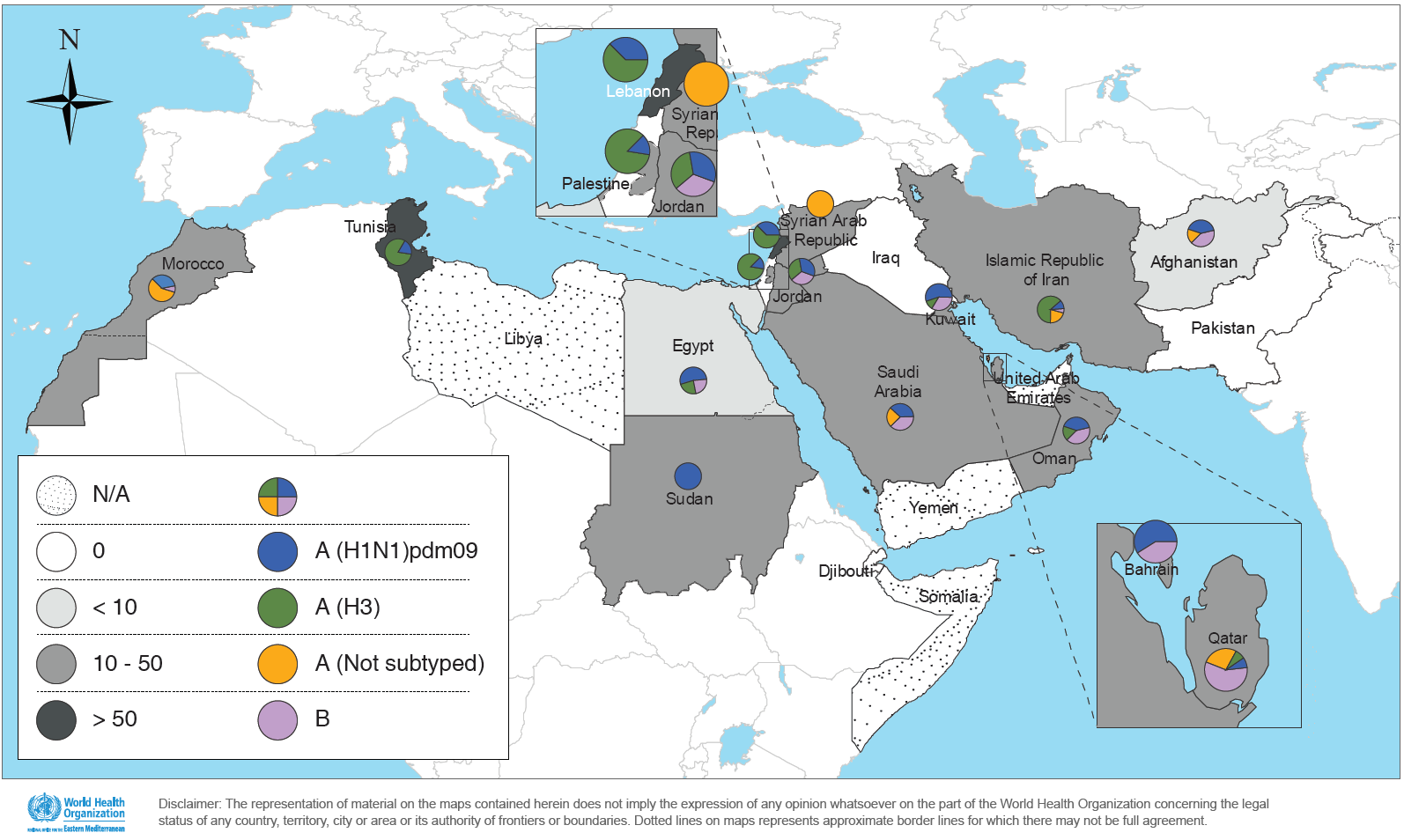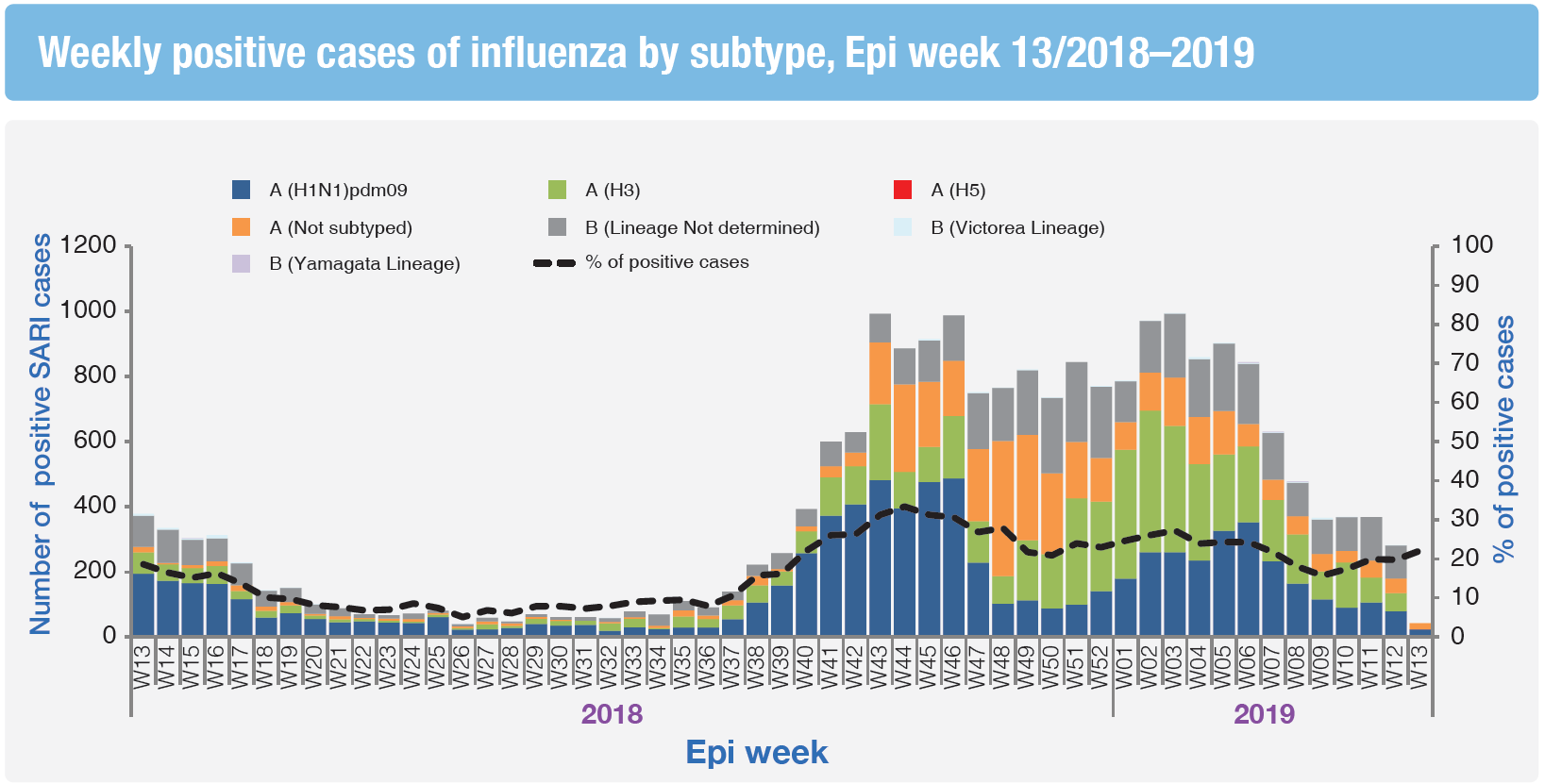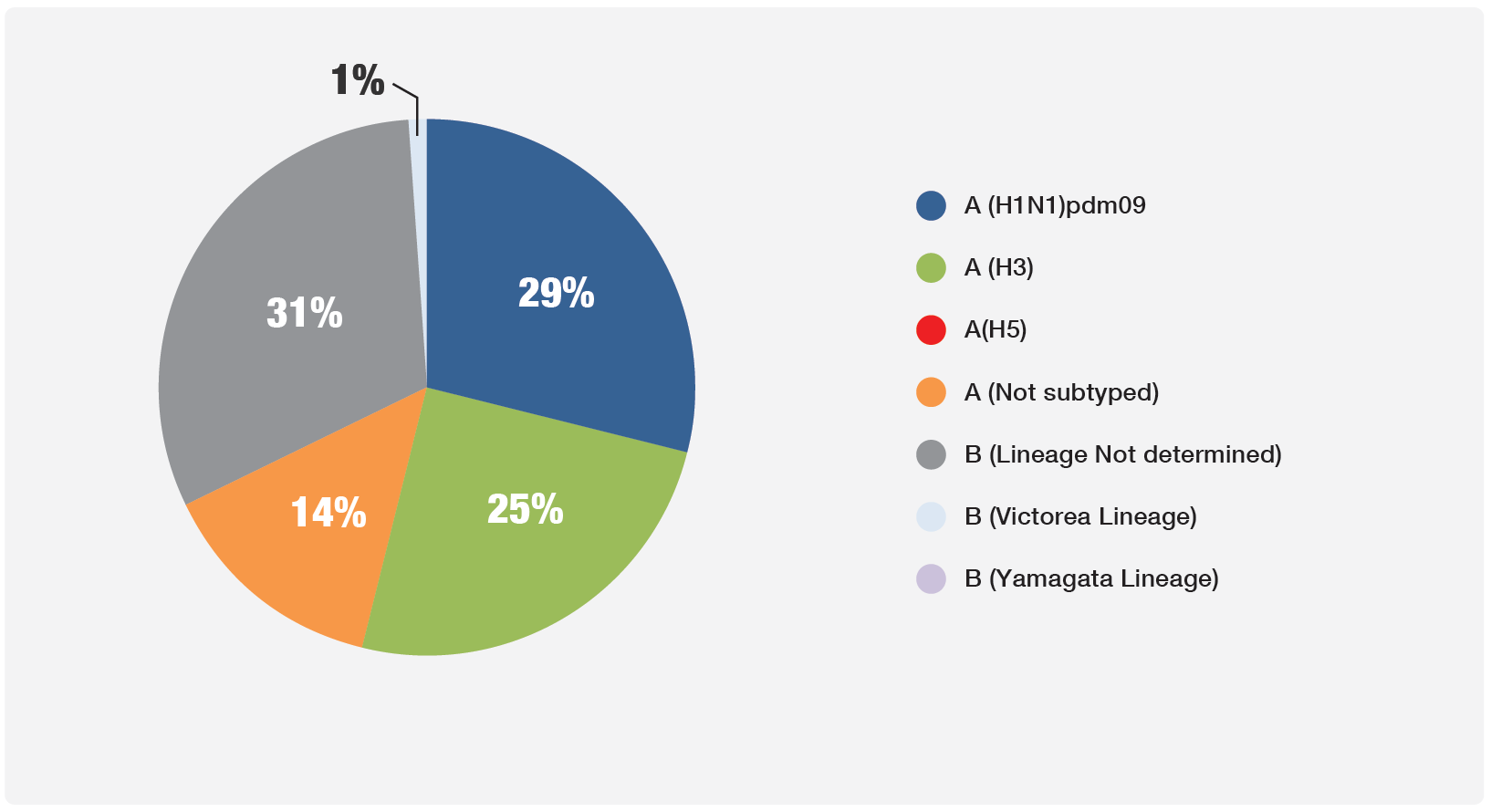In the WHO Eastern Mediterranean Region, influenza activity continues to increase in the month of March in many countries reporting data to FluNet and EMFLU namely, Afghanistan, Bahrain, Egypt, Iran (Islamic Republic of), Iraq, Jordan, Kuwait, Lebanon, Morocco, occupied Palestinian territory (oPt), Oman, Pakistan, Qatar, Saudi Arabia, Sudan, Syrian Arab Republic and Tunisia.
In March 2019, roportion of tested cases for influenza in EMR is 88% out of 9,159 enrolled cases, 18% of the tested cases is positive and 82% is negative.
Figure 1: Influenza geographic spread by type and subtypes, March 2019

Influenza activity by sub-type
• In March 2019, no new cases of human influenza A(H5N1) were reported in Egypt.
• In the northern Africa influenza transmission zone, influenza activity continued to decrease in Egypt, Morocco and Tunisia with all seasonal influenza subtypes co-circulating.
• In the western Asia influenza transmission zone, Oman, Saudi Arabia, Qatar and Kuwait continued reporting high co-circulation of influenza types A and B with influenza B virus predominating in Qatar. Jordan, Lebanon, reported cocirculation of A(H1N1)pdm09 and A(H3N2) and few B viruses while oPt and Iraq reported circulation of Influenza A(H1N1)pdm09 and A(H3N2) viruses, with slightly more detections of A(H3N2).
• In southern Asia transmission zone, influenza activity continued to decrease with all seasonal influenza subtypes co-circulating in Afghanistan and Iran (Islamic Republic of) with A(H3N2) predominating.
Source of transmission zones: http://www.who.int/csr/disease/swineflu/transmission_zones/en/

Circulating influenza viruses by subtype
• During March 2019, national influenza centres and influenza laboratories in the Region tested a total of 8,036 specimens for influenza viruses of which 1,453 tested positive (18%).
• The average percentage of positivity rates is 18%, with highest positivity rate recorded in Lebanon, Saudi Arabia and Tunisia.
• Of the viruses tested; 977 (68%) were influenza A viruses, including 413 (29%) influenza A(H1N1)pdm09 virus, 359 (25%) were influenza A(H3) virus and 205 (14%) were influenza A(not subtyped) virus. Influenza B (Lineage Not determined) virus accounted for 443 (31%).
Figure 3: Circulating influenza viruses in the EMR by subtype, March 2019




